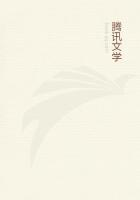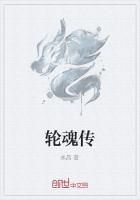Abraham Cowley was the son of Thomas Cowley, stationer, and citizen of London in the parish of St. Michael le Querne, Cheapside. Thomas Cowley signed his will on the 24th of July, 1618, and it was proved on the 11th of the next month by his widow, Thomasine. He left six children, Peter, Audrey, John, William, Katherine, and Thomas, with a child unborn for whom the will made equal provision with the rest.
The seventh child, born before the end of the same year, was named Abraham, and lived to take high place among the English Poets.
The calm spirit of Cowley's "Essays" was in all his life. As he tells us in his Essay "On Myself," even when he was a very young boy at school, instead of running about on holidays and playing with his fellows, he was wont to steal from them and walk into the fields, either alone with a book or with some one companion, if he could find any of the same temper. He wrote verse when very young, and says, "I believe I can tell the particular little chance that filled my head first with such chimes of verse as have never since left ringing there; for I remember when I began to read and to take some pleasure in it, there was wont to lie in my mother's parlour (I know not by what accident, for she herself never in her life read any book but of devotion), but there was wont to lie Spenser's works."
The delight in Spenser wakened all the music in him, and in 1628, in his tenth year, he wrote a "Tragical Historie of Pyramus and Thisbe."
In his twelfth year Cowley wrote another piece, also in sixteen stanzas, with songs interspersed, which was placed first in the little volume of Poetical Blossoms, by A. C., published in 1633. It was a little quarto of thirty-two leaves, with a portrait of the author, taken at the age of thirteen. This pamphlet, dedicated to the Dean of Westminster, and with introductory verses by Cowley and two of his schoolfellows, contained "Constantia and Philetus," with the "Pyramus and Thisbe," written earlier, and three pieces written later, namely, two Elegies and "A Dream of Elysium." The inscription round the portrait describes Cowley as a King's Scholar of Westminster School; and "Pyramus and Thisbe" has a special dedication to the Head Master, Lambert Osbalston. As schoolboy, Cowley tells us that he read the Latin authors, but could not be made to learn grammar rules by rote. He was a candidate at his school in 1636 for a scholarship at Cambridge, but was not elected.
In that year, however, he went to Cambridge and obtained a scholarship at Trinity.
Cowley carried to Cambridge and extended there his reputation as boy poet. In 1636 the "Poetical Blossoms" were re-issued with an appendix of sixteen more pieces under the head of "Sylva." A third edition of the "Poetical Blossoms" was printed in 1637--the year of Milton's "Lycidas" and of Ben Johnson's death. Cowley had written a five-act pastoral comedy, "Love's Riddle," while yet at school, and this was published in 1638. In the same year, 1638, when Cowley's age was twenty, a Latin comedy of his, "Naufragium Joculare," was acted by men of his College, and in the same year printed, with a dedication to Dr. Comber, Dean of Carlisle, who was Master of Trinity. The poet Richard Crashaw, who was about two years older than Cowley, and, having entered Pembroke Hall in 1632, became a Fellow of Peterhouse in 1637, sent Cowley a June present of two unripe apricots with pleasant verses of compliment on his own early ripeness, on his April-Autumn:-"Take them, and me, in them acknowledging How much my Summer waits upon thy Spring."
Cowley was able afterwards to help Crashaw materially, and wrote some lines upon his early death.
In 1639 Cowley took the degree of B.A. In 1640 he was chosen a Minor Fellow, and in 1642 a Major Fellow, of Trinity, and he proceeded to his M.A. in due course. In March, 1641, when Prince Charles visited Cambridge, a comedy called "The Guardian," hastily written by Cowley, was acted at Trinity College for the Prince's entertainment. Cowley is said also to have written during three years at Cambridge the greater part of his heroic poem on the history of David, the "Davideis." One of the occasional poems written at this time by Cowley was on the early and sudden death of his most intimate friend at the University, William Hervey, to whom he was dearer than all but his brothers and sisters, and, says Cowley:
"Even in that we did agree, For much above myself I loved them too."
Hervey and Cowley had walked daily together, and had spent nights in joint study of philosophy and poetry. Hervey "had all the light of youth, of the fire none."
"With as much zeal, devotion, piety, He always lived as other saints do die.
Still with his soul severe account he kept, Weeping all debts out ere he slept;
Then down in peace and innocence he lay, Like the sun's laborious light, Which still in water sets at night, Unsullied with the journey of the day."















